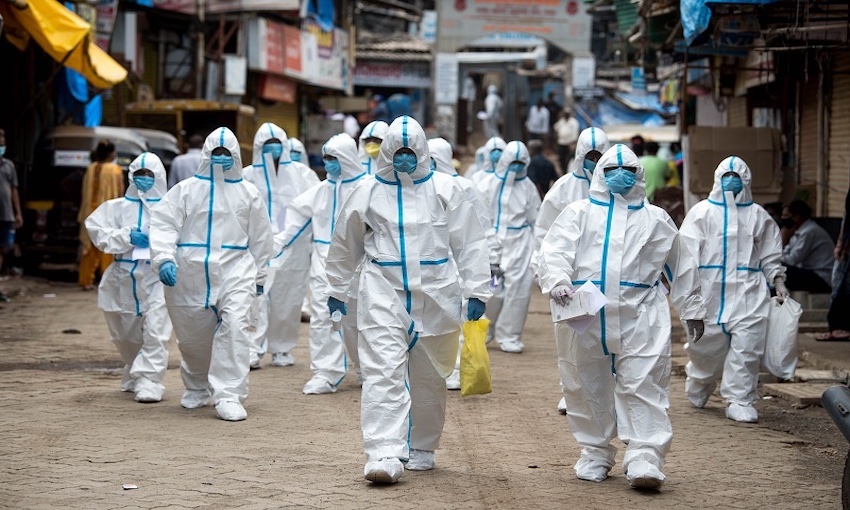WORLD Health Organisation (WHO) director-general Dr Tedros Ghebreyesus and International Labour Organization (ILO) director-general Guy Ryder have confirmed their organisations will form an action group “as a matter of urgency” with major transport bodies to ensure freedom of movement for international transport workers.
The commitment came after organisations and unions representing road, air and sea companies and workers met with Dr Tedros and Mr Ryder last week. They warned of the impact of new travel restrictions on transport workers and the already fragile global supply chain in the wake of the Omicron variant.
The International Air Transport Association (IATA), the International Chamber of Shipping (ICS), the International Road Transport Union (IRU), and the International Transport Workers’ Federation (ITF), have made urgent pleas for governments’ health departments to co-ordinate measures and avoid restricting the movement of transport workers.
Dr Tedros said other areas of focus for the action group will include amending the Yellow Card, a medical passport issued by WHO, to be used by transport workers as proof of vaccination.
The WHO and the ILO also confirmed that the UN Secretary General’s Executive Committee in January 2022 will discuss further solutions to issues raised by the transport organisations.
The transport bodies had previously shared fears that knee-jerk decisions made by governments to reimpose travel restrictions for transport workers in response to the emergence of the Omicron variant could shatter supply chains and delay global economic recovery.
Since Omicron was noted as a “variant of concern” by WHO, some 56 nations have updated COVID tightened travel restrictions in response. The transport bodies expressed frustration that governments were reneging on clear steps issued to world leaders in September to guarantee the free and safe movement of transport workers.
The organisations said the WHO should encourage countries to adopt the tried and tested travel and health protocols for seafarers and drivers which the WHO has itself endorsed.
Dr Tedros Ghebreyesus said, “Protecting the health of cross border transport workers and maintaining travel operations for emergency and humanitarian missions, essential personnel, repatriations, and cargo transport of essential supplies is of critical importance.”
Guy Platten, secretary general of ICS, said, “We need governments to urgently protect the health and safety of cross-border workers if they want a holiday season that is anywhere near normal. It’s really worrying to see last year’s draconian travel restrictions starting to reappear in many countries, especially as millions of transport workers have been making enormous sacrifices for scant recognition for nearly two years.
“It is very promising to see the WHO and ILO take leadership on protecting international transport workers’ rights and we look forward to working closely with them in the weeks and months ahead.”
Stephen Cotton, general secretary of ITF, said, “As we enter peak season for transport workers over Christmas, it is critical that we work collectively to alleviate the strain on our global supply chain.
“What we can’t have are governments, like we’re seeing in Australia, blaming transport workers for disruptions stemming from a global health crisis. This is about leadership, not protectionism or politicking.”

